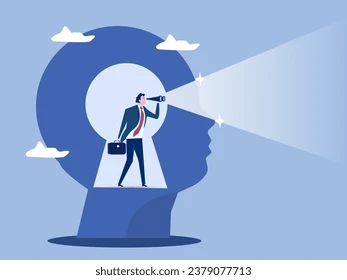Introduction:
Leadership is a complex phenomenon that encompasses various psychological aspects. In today’s dynamic and competitive business environment, understanding these psychological factors is crucial for effective leadership and successful organizational behavior.
Understanding the Role of Emotional Intelligence:
Emotional intelligence (EI) plays a vital role in effective leadership. Leaders with high EI are adept at recognizing and managing their emotions and those of others. They could empathize with their team participants, construct sturdy relationships, and navigate interpersonal conflicts successfully. Research suggests that leaders with high EI are better able to inspire and motivate their teams, resulting in increased productivity and employee satisfaction.
The Power of Transformational Leadership:
Transformational leadership is another psychological concept that has gained prominence in organizational behavior. Transformational leaders inspire and motivate their followers by articulating a compelling vision, fostering innovation, and empowering individuals to reach their full potential. They lead by example, demonstrating integrity, authenticity, and a commitment to shared values. By nurturing a sense of purpose and meaning, transformational leaders can foster a culture of excellence and drive organizational success.
The Influence of Cognitive Biases:
Cognitive biases are inherent tendencies in human thinking that can affect decision-making and organizational behavior. Leaders need to be aware of these biases and mitigate their impact to make informed and rational decisions. Common biases such as confirmation bias, where individuals seek out information that confirms their existing beliefs, can hinder objective decision-making. By promoting a culture of critical thinking and open-mindedness, leaders can overcome cognitive biases and foster innovation and creativity within their organizations.
Creating a Positive Organizational Culture:
Organizational culture plays a significant role in shaping behavior and performance within a company. Leaders have a responsibility to cultivate a positive and inclusive culture that fosters collaboration, trust, and mutual respect. By promoting transparency, communication, and feedback, leaders can create an environment where employees feel valued and empowered to contribute their best work. A strong organizational culture not only enhances employee engagement and retention but also drives organizational agility and resilience in the face of change.
![]()
Building Effective Teams:
Effective leadership also involves building and nurturing high-performing teams. Leaders must understand the dynamics of team formation, group cohesion, and interpersonal relationships. By fostering a sense of belonging and psychological safety, leaders can create an environment where team members feel comfortable expressing their ideas and opinions. Through effective communication, goal alignment, and conflict resolution strategies, leaders can harness the collective talents and strengths of their teams to achieve shared objectives.
Conclusion:
In conclusion, effective leadership and organizational behavior are deeply rooted in psychological principles. By cultivating emotional intelligence, practicing transformational leadership, mitigating cognitive biases, fostering a positive organizational culture, and building effective teams, leaders can drive organizational success and create a thriving workplace environment. By understanding and applying these psychological aspects, leaders can navigate challenges, inspire their teams, and achieve sustainable growth and innovation.


